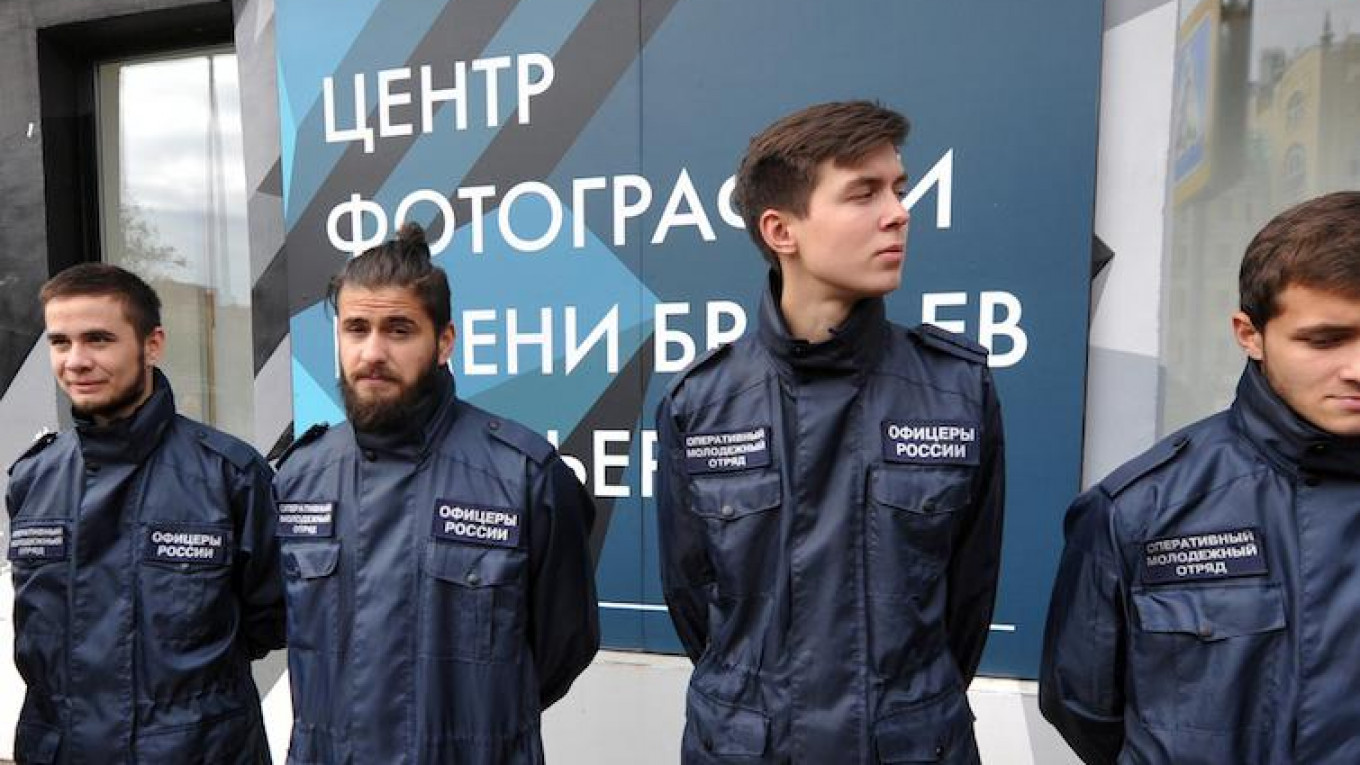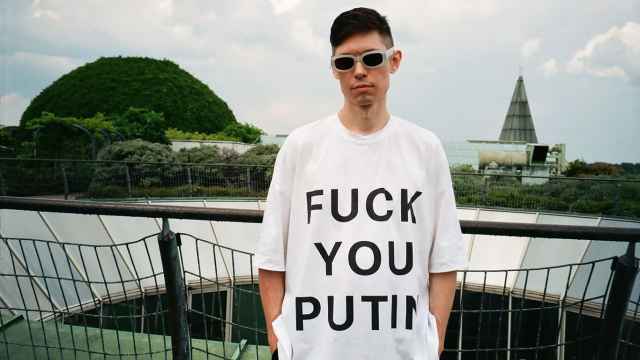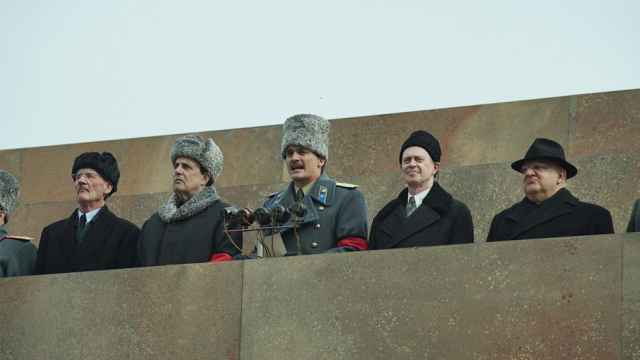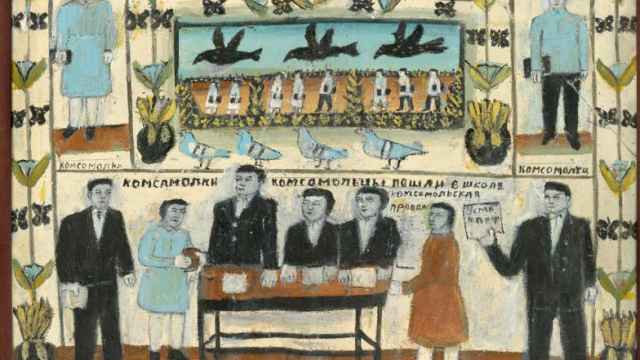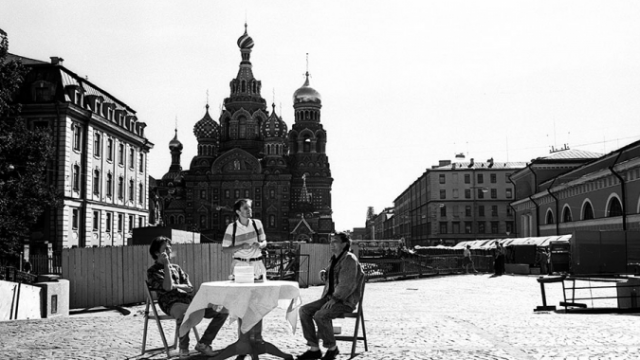It was a Wednesday in April 1990 when Jock Sturges came home from a morning swim to discover FBI agents and San Francisco police officers raiding his home, boxing up his cameras, studio equipment, business records, correspondence, and hundreds of thousands of negatives and photographs. The cops reportedly grabbed his copy of Vladimir Nabokov’s “Lolita,” too.
The police took an interest in Sturges’ work after receiving a phone call from an employee at a local film lab, who described the photographer’s work as “distinctively disturbing.”
This was the beginning of a decade of controversy in the United States for Jock Sturges, whose work often depicts images of nude adolescents and children.
The San Francisco art community subsequently rallied to the artist’s defense, and the city’s mayor and Board of Supervisors passed resolutions that successfully pressured local police to dismiss all charges against his colleague who had placed the order at the film lab that called the authorities.
The FBI spent another 15 months combing over Sturges’ case materials, allegedly harassing some of his acquaintances, business associates, and former models, but finally a San Francisco grand jury refused to indict the photographer on any charges.
Russia’s Jock Sturges Exhibition
More than a quarter of a century later, Jock Sturges is still provoking raids and public anger, this time in Moscow.
On Sept. 8, without much fanfare, his “No Embarrassment” exhibition went on display at the Lumiere Brothers Center for Photography. For more than two weeks, Sturges’ portraits hung on the walls in relative quiet, until Saturday, September 24, when blogger Lena Myro (whose social media profile picture prominently displays her trim posterior in denim cutoffs) published photographs of Sturges’ work online, calling the show at the Lumiere Brothers Center “an exhibition for pedophiles.” Myro, who is ranked as LiveJournal’s third most popular blogger in Russia, blamed lawmakers and police for failing to respond to what she says is child pornography.
That same day, Russia’s most prominent social conservative — Senator Yelena Mizulina — publicly called on the Prosecutor General’s Office to open an investigation into the apparent display of child pornography. Later that evening, the country’s newly-minted children’s rights ombudsman, Anna Kuznetsova, announced that she, too, had contacted federal prosecutors about the art exhibition.
Then, yesterday on Sept. 25, a phalanx of spiffily dressed “Officers of Russia” lined up outside the Lumiere Brothers Center and blocked people from entering the gallery. Mainly young men in windbreakers and military camo, these “officers” answered to Anton Tsvetkov, a member of Russia’s “Public Chamber” state advisory board. Addressing reporters outside the gallery, Tsvetkov explained that his organization was imposing “community sanctions” in response to “a great number of appeals from angry citizens.”
Tsvetkov noted that the particularly explicit photographs shared on Lena Myro’s LiveJournal were not in fact on display at the Lumiere Brothers Center. “However, in about 15 percent of the photos,” he explained, “there are half-naked children depicted.”
Tsvetkov later instructed his men to allow journalists into the exhibition, where he announced that it would be shut down, following a “joint decision” with the gallery.
The exhibition's curator, Natalya Grigoreva, told reporters that the gallery made this decision on its own, citing threats received online. She told the Meduza news website that the center’s staff feared for the safety of visitors and for the work on display in the gallery’s other exhibitions.
Nazis and Mysterious Fluids
On the Internet, liberal-minded Muscovites and self-described freethinkers around the world have denounced the raid on an art gallery and the open intimidation used to squash a photography exhibition. In a Facebook post that attracted nearly 3,000 shares and more than 5,000 “reactions,” Ilya Klishin, the former managing editor of Dozhd television’s website, likened the tactics used by the “Officers of Russia” to those employed by German fascists in 1933, sharing a photograph of stormtroopers lined up outside the Woolworth Co. that looks eerily like images recorded outside the Lumiere Brothers Center this weekend. (Not everyone thought Klishin’s comparison was so brilliant, however. Ekho Moskvy chief editor Alexey Venediktov mocked the “discovery” in a popular tweet, for instance.)
According to the RIA news agency, Moscow police are unlikely to launch criminal charges against the Lumiere Brothers Center for Photography for displaying work by Jock Sturges. “Most likely, [the decision] will be a ‘rejection,’ meaning that [police] will decline to launch criminal proceedings,” a source in Moscow’s law enforcement told RIA, acknowledging that the decision could also be referred to federal investigators.
Before yesterday was done, there was one more spectacle in store: a man who entered the Lumiere Brothers Center with the journalists managed to splash a dark liquid on some of the portraits (reporters say it was a mix of urine and feces). As he flung the mix at the photos from a water bottle, he shouted, “I’m demonstrating my position!” A member of the “Officers of Russia” then tackled the man, and delivered him outside to police, who incidentally made no effort to intervene in any of the mayhem that unfolded at the Lumiere Brothers Center.
The man was later identified as Alexander Petrunko, an activist in the pro-Kremlin “SERB” movement, and sentenced to a week in detention. At his hearing, he told the court that he’d thrown “therapeutic mud from Crimea” at the photographs. Petrunko is a citizen of Ukraine, where he’s now wanted by police. In Russia, he serves as an aide to a Moscow city councilman.
The ‘Streisand Effect’
In a press release for the exhibition, Sturges defended his work, saying that "nudity does not mean anything here.”
When he was investigated by U.S. police decades ago, the photographer racked up roughly $100,000 in legal fees. The scandal also made Sturges — already a respected photographer on the coasts — an international art celebrity, skyrocketing interest in his work and vastly improving sales (and running up the prices) of his controversial prints.
Now that the “No Embarrassment” exhibition is shutting down, Muscovites won’t have the opportunity to come and see, let alone purchase, prints of Sturges’ portraiture. This isn’t 1990, however, and the public has managed to satisfy its curiosity in other ways. According to Google Trends, for instance, searches for “Jock Sturges” have exploded since Sept. 24 in Russia and Eastern Europe. The same is true of Google searches for the title of the exhibition, which opened its doors on Sept. 8 but didn’t merit so much as a blip of interest online, until the day Russia’s moral police sounded the alarm.
Were it not for Lena Myro and the paramilitary “Officers of Russia,” it’s a safe bet that Sturges’ work would have remained as it was — obscure and relegated to the gossip of Moscow’s art community. Now the whole city, it seems, knows Sturges’ work. And perhaps millions of people were intrigued enough to hop online and flip through some of the photos critics say are so dangerous.
For a Moscow Times photo gallery of the events at the Lumiere Brothers Center, click here.
A Message from The Moscow Times:
Dear readers,
We are facing unprecedented challenges. Russia's Prosecutor General's Office has designated The Moscow Times as an "undesirable" organization, criminalizing our work and putting our staff at risk of prosecution. This follows our earlier unjust labeling as a "foreign agent."
These actions are direct attempts to silence independent journalism in Russia. The authorities claim our work "discredits the decisions of the Russian leadership." We see things differently: we strive to provide accurate, unbiased reporting on Russia.
We, the journalists of The Moscow Times, refuse to be silenced. But to continue our work, we need your help.
Your support, no matter how small, makes a world of difference. If you can, please support us monthly starting from just $2. It's quick to set up, and every contribution makes a significant impact.
By supporting The Moscow Times, you're defending open, independent journalism in the face of repression. Thank you for standing with us.
Remind me later.


